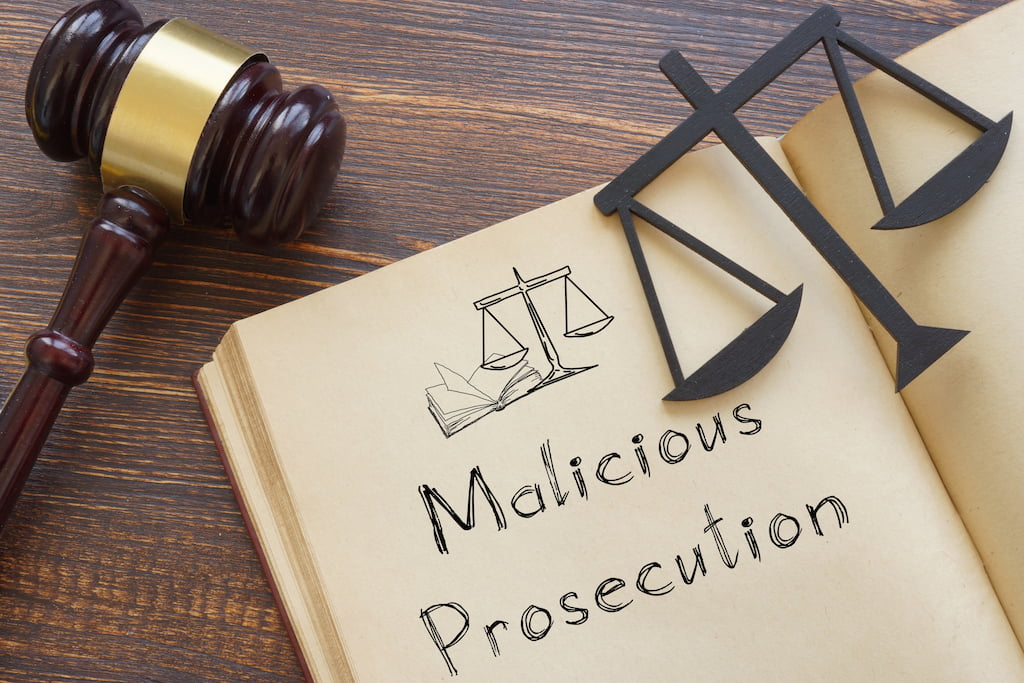
Malicious Prosecution: An Overview
Malicious prosecution is a legal term that refers to the act of initiating a criminal or civil proceeding against another person without any reasonable or probable cause, and with a wrongful or improper motive. Malicious prosecution is considered as an abuse of the judicial system, as it aims to harass, defame, or harm the innocent party. Malicious prosecution can be claimed under both the Indian Penal Code (IPC) and the Law of Torts.
Malicious Prosecution under IPC
Section 211 of the IPC deals with the offence of false charge of offence made with intent to injure. It states that whoever, with intent to cause injury to any person, institutes or causes to be instituted any criminal proceeding against that person, or falsely charges any person with having committed an offence, knowing that there is no just or lawful ground for such proceeding or charge against that person, shall be punished with imprisonment of either description for a term which may extend to two years, or with fine, or with both.
Section 499 of the IPC defines defamation as the act of making or publishing any imputation concerning any person intending to harm, or knowing or having reason to believe that such imputation will harm, the reputation of such person. Defamation can be either by words spoken or intended to be read, or by signs or by visible representations. Section 500 of the IPC provides that whoever defames another shall be punished with simple imprisonment for a term which may extend to two years, or with fine, or with both.
Malicious Prosecution under Law of Torts
Malicious prosecution is also a tortious action that can be brought by the aggrieved party against the person who has wrongfully instituted a legal proceeding against him. The essential elements of malicious prosecution under law of torts are:
Prosecution by the defendant: The plaintiff must prove that he was prosecuted by the defendant in a criminal or civil proceeding.
Absence of reasonable and probable cause: The plaintiff must prove that the defendant had no reasonable and probable cause to initiate the proceeding against him. Reasonable and probable cause means an honest belief in the guilt of the accused based on a full conviction, founded upon reasonable grounds, of the existence of a state of circumstances which, assuming them to be true, would reasonably lead any ordinarily prudent and cautious man, placed in the position of the accuser, to the conclusion that the person charged was probably guilty of the crime imputed.
Malice: The plaintiff must prove that the defendant acted maliciously in instituting the proceeding against him. Malice means any improper motive other than a desire to bring an offender to justice. Malice may be inferred from the absence of reasonable and probable cause, but it is not conclusive.
Termination of proceeding in favour of plaintiff: The plaintiff must prove that the proceeding initiated by the defendant was terminated in his favour. This means that he was either acquitted or discharged in a criminal case, or that he obtained a decree in his favour in a civil case.
Damage: The plaintiff must prove that he suffered damage as a result of the prosecution by the defendant. The damage may be to his reputation, person, or property.
Remedies for Malicious Prosecution
The remedies available for malicious prosecution are:
Damages: The plaintiff can claim compensation for the pecuniary and non-pecuniary losses suffered by him due to the malicious prosecution. The damages may include loss of reputation, mental agony, loss of income, legal expenses, etc.
Injunction: The plaintiff can seek an injunction from the court to restrain the defendant from continuing or repeating the malicious prosecution.
Declaration: The plaintiff can seek a declaration from the court that he was wrongfully prosecuted by the defendant and that his reputation has been vindicated.
Criminal action: The plaintiff can also initiate a criminal action against the defendant for offences such as false charge (Section 211 IPC), defamation (Section 499 IPC), etc.
Conclusion
Malicious prosecution is a serious wrong that violates the rights and dignity of an innocent person. It also undermines the credibility and integrity of the judicial system. Therefore, it is necessary to prevent and punish such acts by providing adequate legal remedies to the victims.
If you want to be a judicial officer and are looking for RJS coaching in Jaipur, here, at Jyoti Judiciary we provide comprehensive study material to make your preparation solidified and top-notch. From preliminary mock tests to mains answer writing sessions every material required for clearing the exam is provided. We have separate legal current affairs classes, legal general knowledge, and current affairs classes all in one-time enrolment. Hurry up.









